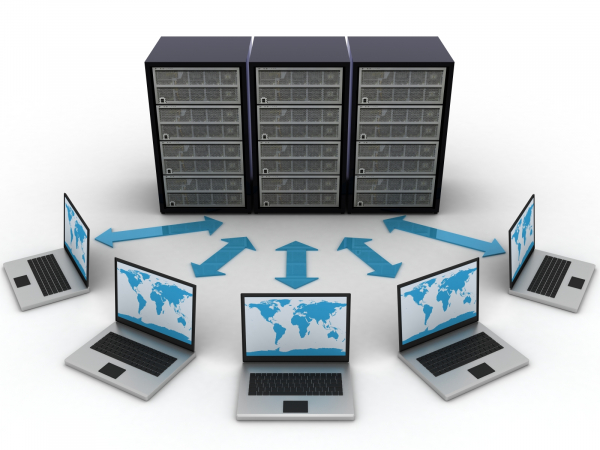What is a special process server?
Nowadays, any business needs an information system, not just a simple computer. To operate and manage that IT system, a business (or individual) needs a Server. However, not everyone understands this concept. Today, Gpwebmedia.net will explain the concept of a Server in the simplest and most understandable way.
1. What is a Server?
A Server is a computer connected to a computer network or the Internet, with a static IP address and high processing capacity. It is installed with software to serve other computers that access it to request services and resources. Simply put, a server is also a computer, but it is designed with many superior features and much larger storage and processing capacity than a regular computer. It is used for storing and processing data within a computer network or on the Internet. A server is the foundation of all Internet services; any service on the Internet, such as websites, applications, games, etc., must operate through a server.

2. Types of Servers
Based on the method of building a server system, servers are divided into three types:
- Dedicated Server: A server running on separate hardware and support devices, including HDD, CPU, RAM, and network card.
- Virtual Private Server (VPS): A type of server created by using virtualization technology to divide a physical server into multiple virtual servers. These virtual servers have similar features to the physical server and share its resources.
- Cloud Server: A server formed by combining multiple physical servers with a SAN storage system.
Based on their functions, servers are divided into the following types:
- Database servers.
- File servers: Servers that store files, such as Dropbox, Google Drive, Microsoft One Drive.
- Mail servers: Mail servers like Gmail, Yahoo Mail, Yandex, Amazon Mail Service.
- Print servers: Print servers, typically used in small business networks.
- Web servers: Web servers that serve users for purchasing, reading news, etc., on sites like Amazon, Taobao, Google Shopping.
- Game servers: Game servers for games like Võ Lâm, World of Warcraft, Tru Tiên.
- Application servers: Servers for running ERP management software, CRM software within a business, or servers providing web, mail, file, and database services.
3. The Role of a Server
Storing, providing, and processing data continuously 24/7 for users or organizations through LAN or Internet.
Storing information, managing, and operating enterprise software. Businesses only need to optimize the hardware for the server system without investing heavily in other personal workstations.
For individual users, a server acts as the main storage and operational unit for a system’s data. For instance, internet cafes must use servers to connect to other workstations.

- Dedicated Server: Ensures resource redundancy, power backup, and server safety.
- VPS Server: Can host hundreds of other hostings, optimized for building Mail Servers, Web Servers, or Backup/Storage Servers.
- Cloud Server: Supports websites with high traffic without losing stability.
- Application servers:** Web application servers allow users within the system to use it without needing to install another copy on their computers.
- Game servers: Allow personal computers or gaming devices to play web-based games.
- Web server: Hosts web pages, and a single web server can contribute to a wide-area network (World Wide Web), with each website possibly having one or multiple web servers.
- Print server: A computer connected to a printer.
- Mail server: Sends emails similar to how a post office sends mail via snail mail.
- File server: Shares files and folders, which are stored in a storage space or both through a certain system.
- Database server: Maintains and shares some form of data on a system.
I hope this article has provided you with more information about Servers and their roles. Thank you for reading!
